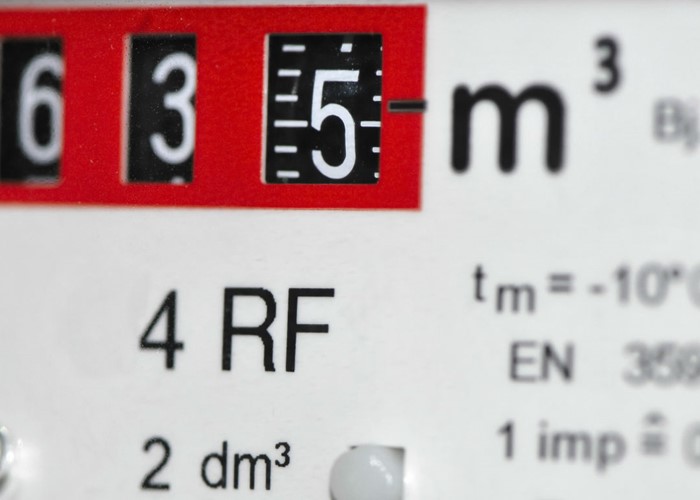OFGEM proposals unlikely to do much good

As usual, OFGEM is sounding tough, but once again its latest review into energy prices won't make much difference, if any.
After an energy market review, OFGEM admitted last week that gas and electricity suppliers are failing customers. This is not an especially new tone from the energy regulator. While on one side, OFGEM gives the green light to energy hikes, on the other it has to convince customers it's on their side and that it is being hard on suppliers, and to do this it occasionally has stern words about suppliers.
To that end, after completing its review it has announced what it calls a 'radical overhaul' of the market. That phrase was in the headline of its press statement anyway, and everyone from newspapers to Consumer Focus seem to have bought it. But it's an old trick to say one thing in the headline but then to do nothing about it in the actual text, and that's what we've got here.
Here's my view of OFGEM's main proposals:
OFGEM's first proposal is to make standard tariffs more simple. Each supplier should reduce its number of standard tariffs to one per payment method (i.e. direct debit, prepayment and standard credit) with just a single “per unit” price, which presumably means a single price replacing the standing charge, first tier and second tier units that currently make most bills so complicated.
My view is that this should make comparing standard tariffs easy, but since no sensible customer should ever be on a standard tariff – all of the standard tariffs being very expensive indeed – it doesn't do much good. The 300 or so other tariffs in which customers would benefit from clearer pricing will remain complicated under OFGEM's proposals.
Related how-to guide

Cut your energy bills
Fight back against rising energy prices with these top tips.
See the guideOFGEM's second proposal is to ban suppliers from shunting customers from expiring fixed-term deals into new fixed-term ones. It wants suppliers instead to put them on their standard products after a deal expires.
My view is I'm sure the energy suppliers will be only too happy to oblige. Many of them already frequently do this, relying on customer switching lethargy to get more fat profits from their standard tariffs.
OFGEM's third proposal is for the big six suppliers to auction off 10% to 20% of the wholesale electricity market. The wholesale market sells electricity to the retail market, which then sells it to us customers. The problem is that major players in both the wholesale markets are the same major companies we all know and love in the retail market: Centrica (British Gas), EDF, and the rest. Their control in both markets gives them more pricing power all the way up the chain to households.
My view is, if the big suppliers auction 10% of their stakes, that'll reduce their total share of the market by around 6% (although this figure comes before EON's recent sale of electricity distribution services to a firm close to it: PPL Corp). The suppliers would still then control a large part of the market.
If suppliers auction 20% of their share in the wholesale market it might make it easier for small suppliers to buy electricity to sell on to us, increasing competition. That could make prices cheaper for the minority who regularly switch, at any rate.
OFGEM's fourth proposal is to increase transparency in accounting by appointing independent auditors. The industry is currently opaque. Incredibly, OFGEM is even forced to guess how much profit the suppliers make on domestic energy, because OFGEM sets no price controls and the suppliers don't have to reveal to the regulator when they bought wholesale energy or at what price.
Rachel Robson gives you the lowdown on five ways to cut your energy bills
My view is there’s already pretty good evidence that suppliers get away with charging high prices to us when they've bought in the wholesale market at low prices, but OFGEM has so far not done anything about it. Even so, I am hopeful independent auditors might uncover evidence that OFGEM can't ignore. It's too early to get excited, though.
What the industry's reaction tells us
The industry has until 1 June to agree to the proposals or come up with alternatives, but I don't think these proposals will alarm the energy suppliers. Centrica has already warmly welcomed them as an alternative to referral to the Competition Commission, and it's promised to work with the regulator on them. Investors' reaction in the stock market barely registered either.
It seems, then, that suppliers will probably agree to the proposals or something much like them, and that lack of resistance will be the biggest sign that these 'radical' proposals aren't going to genuinely drive down prices for most customers.
The answer is “No”
I don't think we can go so far as to say OFGEM's proposals will achieve nothing, but are they likely to make more customers shop around for the cheapest tariffs?
Are they going to make most tariffs – including the cheaper ones, easier to decipher? Are they going to make most tariffs easier to get out of? Are they going to significantly increase competition and bring down prices? Is it going to put an end to these 5 gas and electricity rip-offs?
The answer to all of these questions is very probably “No”.
More: Compare gas and electricity prices | Pay no gas bills for two months per year | The secret energy price rises
Comments
Be the first to comment
Do you want to comment on this article? You need to be signed in for this feature